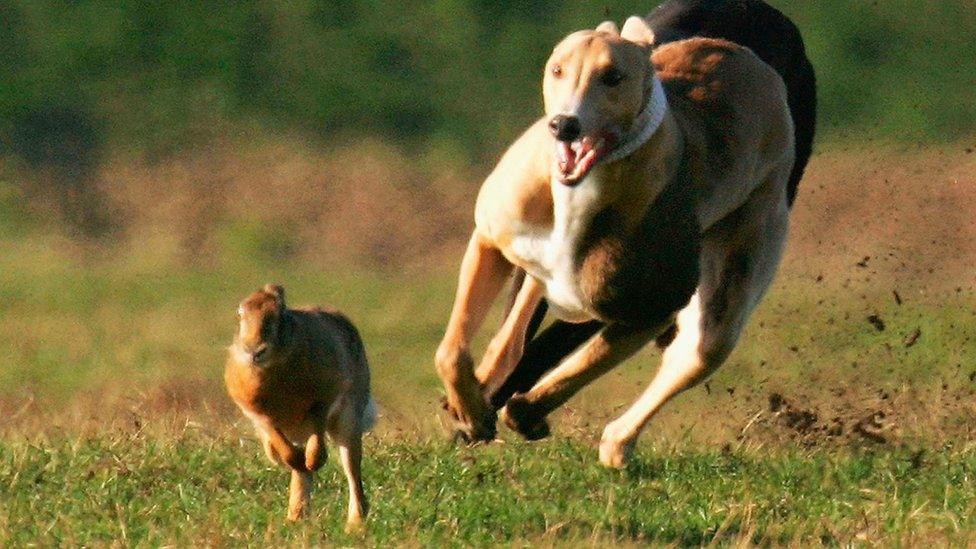Lincolnshire Police take dogs' DNA as hare coursing evidence
- Published
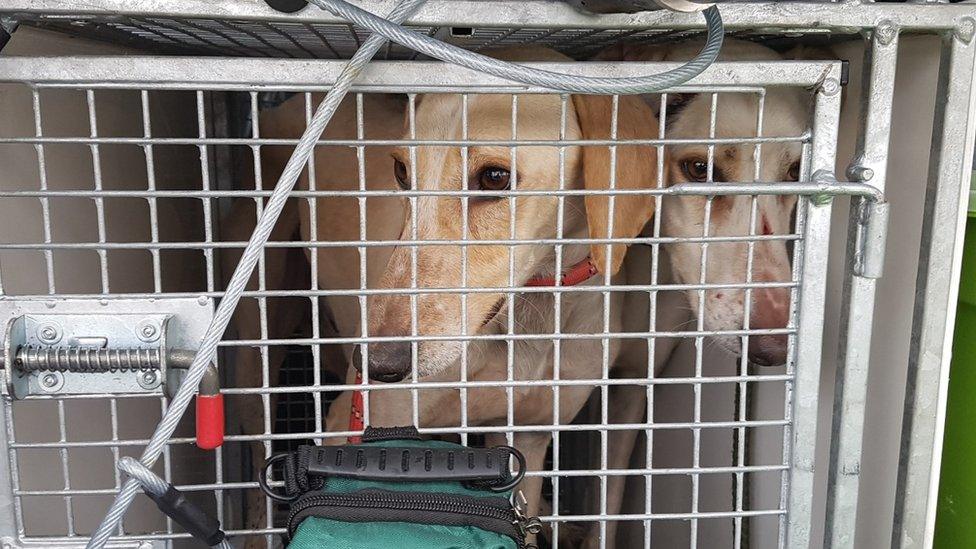
Lincolnshire Police said it hoped the policy would give them a better chance of securing a successful outcome in the courts
Police are taking DNA from dogs in a bid to prove they have been used illegally to catch hares.
Lincolnshire Police, which already has a policy of seizing dogs, said the move would further help to disrupt the illegal activity.
Ch Insp Phil Vickers said it would increase the chances of a successful prosecution.
"Often offenders will deny any involvement, and this is good evidence to show that they have been," he said.
"In order to prove the dogs have been used in hare coursing we've taken DNA from seized dogs and from hares which have been killed in the field to show it is the same DNA.
"It's early days but it's one of the things we want to make the best use of," he said.
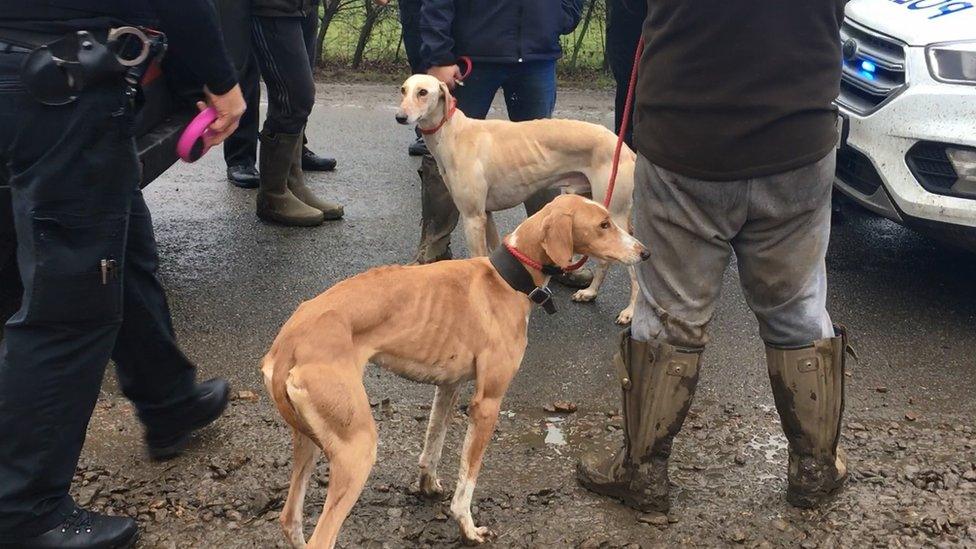
The force is campaigning for the courts to be given more powers to permanently remove dogs from their owners, if convicted
According to police, coursers are often engaged in illegal betting involving large sums of money and the dogs involved can be worth thousands of pounds.
People travel hundreds of miles to take part in illegal contests, and Lincolnshire, with its flat open farmland, is seen as an ideal location.
The force said it was also campaigning for the courts to be given more powers to permanently remove dogs from their owners, if convicted.
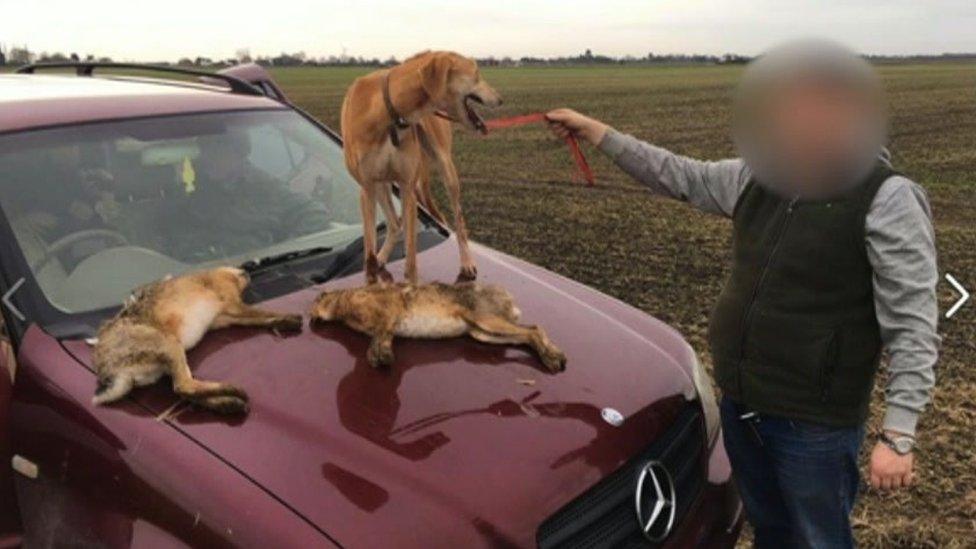
According to police, hare coursers are often engaged in illegal betting involving large sums of money
Lincolnshire Police said the number of reported incidents fell from 1,175 in 2017/18 to 686 in 2018/19.
To date in 2019, the force has recorded 535 incidents.

Hare coursing
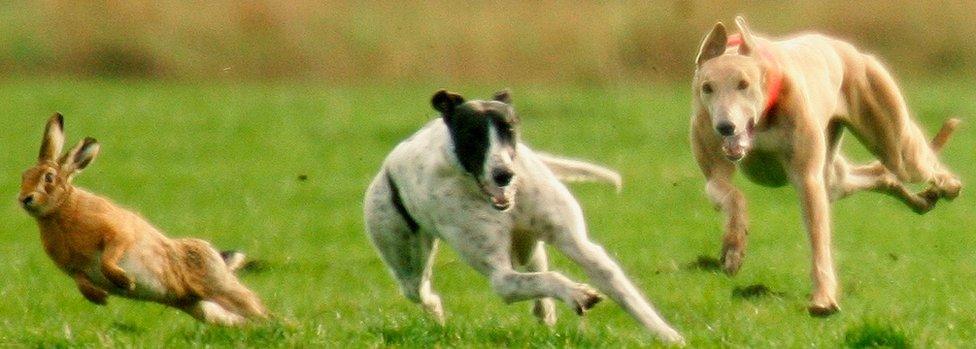
Coursers often use binoculars to spot hares
Dogs - usually greyhounds, lurchers or salukis - are on a slip lead threaded so it can be easily released
Coursers will walk along the field to frighten the hare into the open
The dog catches the hare and kills it by "ragging" it - shaking the animal in its teeth
The dead hare is usually left in the field or thrown in a ditch
Since 2005, hare coursing has been illegal throughout the UK
Source: Lincolnshire Police

Follow BBC East Yorkshire and Lincolnshire on Facebook, external, Twitter, external, and Instagram, external. Send your story ideas to yorkslincs.news@bbc.co.uk, external.
- Published25 December 2018

- Published28 December 2017
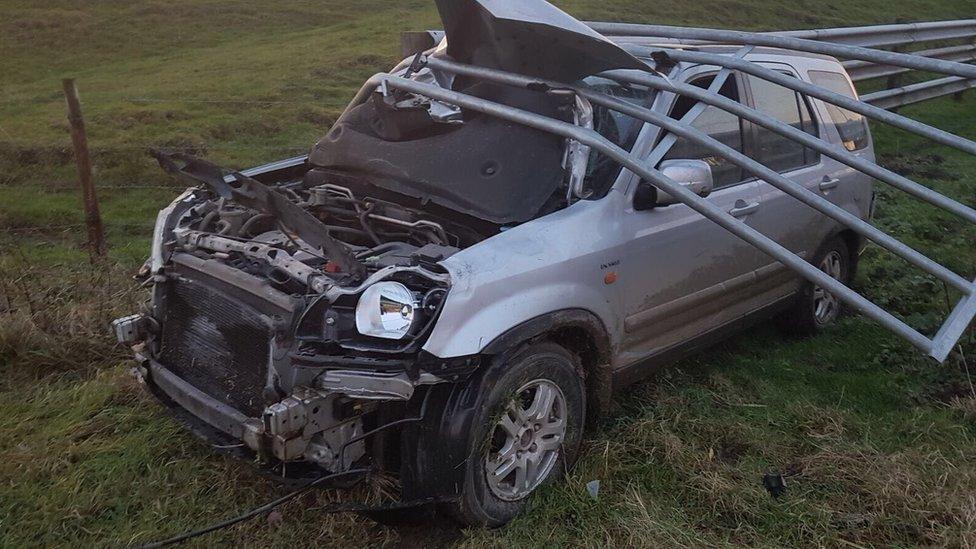
- Published22 December 2017

- Published21 January 2017
